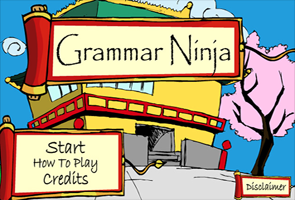There’s nothing like having 10,000 eyes on your social media pages and no small handful of them seem to be there for no better reason than to scrutinize your copy. People are quick to point out even minor errors and flaws, and it can definitely make it seem like top priority to keep on top of the spelling and grammar, but there are instances where the rules can (and probably should) be broken.
The Long-Lost Art of Conversation
As I’ve said before, your content isn’t just stuff for people to read. You have to engage in a conversation with your audience, especially if you’re sharing your content over social media.
Now, while I think that good spelling is non-negotiable, I also know that there are qualitative differences between the spoken language and the written language.
When you are writing a term paper, a thesis, even a news story or press release, the grammar and spelling had better be spot-on accurate, but that kind of content is often paired with a more conversational lead-in. It’s those lead-ins that can be a bit more familiar; they can be written with less deference to the rules and most people won’t be bothered enough by it to judge you. Let’s have a look at a couple examples.
I used to be a real stickler for grammar, even in my emails. I used to use the ones I got from marketers and even other copywriting services and scrutinize the heck out of them. I used to think, “If this is how a copywriting company addresses its potential clients, how could they possibly stay in business?” The messages were rife with grammar problems of every description: sentence fragments, run-ons, improper uses of words like “less” when they meant “fewer” …
The crazy thing was, though, was that I eventually realized that these “mistakes” were all quite intentional. These people had the audacity to start sentences with conjunctions like “and” and “but.”
It practically hurt my eyes just to look at it, but when I stopped looking at it as a copywriter and started looking at it as a potential customer, I realized something important. “Fewer” would sound a bit stuffy to me if I always say, “less.” That’s why they chose one word over the other. I also realized that I start a lot of my sentences with conjunctions when I’m just talking to someone.
Email is casual. Don’t make it too formal. People will think you’re talking over their heads. It’s OK to break the rules in this instance and, really, doing so could actually go a long way toward establishing camaraderie and trust.
Social Media
For some of the same reasons as email, it’s perfectly fine to abandon certain rules of grammar in your Facebook and Twitter posts. Tweets, in particular, tend to act more as headlines than complete thoughts, but even if you’re just sending a random thought out into cyberspace, we don’t think in proper grammar either, do we? We think in more abstract terms, assigning words to our thoughts as we go.
For Facebook, I generally recommend watching the grammar and punctuation in status updates only because there are so many critical eyes out there and you don’t want the conversation polluted with people correcting you. At the same time, I also recommend not being too formal.
Just for the sake of example, dropping the subject from a sentence when “you” is implied often works just fine grammatically, and there’s hardly ever any confusion. The subject is “you” in the phrase, “Take out the garbage,” for example. You might actually catch people’s attention faster by leaving out extraneous words. Which of these do you think commands more attention?
A) Are you joining us tonight at Gillette Stadium?
B) Going to the game tonight?
No one is going to pounce on you for posting Option B, even with a conspicuously missing subject. It’s a much smaller, more digestible chunk of information; more people will actually read it and engage with it. The point is to be casual and succinct without going off the deep end like this:
C) OMG!! RU GOIN’ TO TEH GAME???
That’s just annoying.
I do recommend keeping things a bit more form and function on sites like LinkedIn, though. The reason for that is simple: LinkedIn has a more professional tone, and maintaining a more formal, professional image is a good idea there, especially if you’re using the site to find a job. Some employers scrutinize more heavily than others.
Times When It’s NOT OK
If you really want the grammar police to descend on your content, that’s quite simple, really. Just use words like “there,” “
If making those distinctions isn’t exactly second nature for you, Google has an amazing Chrome plugin called Grammarly that will help you avoid many embarrassing moments related to those pesky parts of speech. Want to kick things up another notch? Try running your copy through Hemingway. It’s similar to Grammarly and offers some extra features that will help make your content really pop.
Oh, just one more thing since I mentioned LinkedIn: Run your LinkedIn bio through Hemingway. I’m just putting that one out there. You can thank me later.
